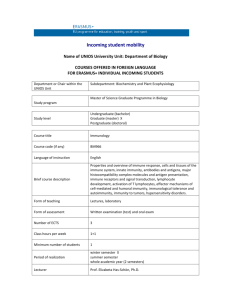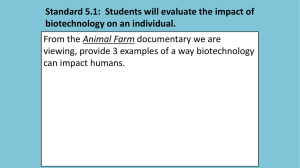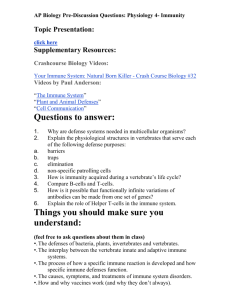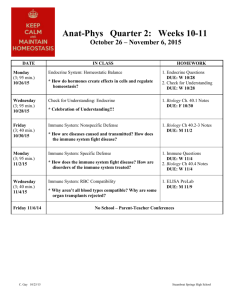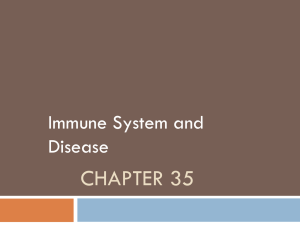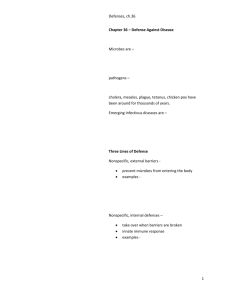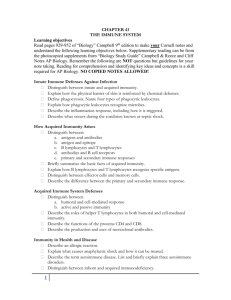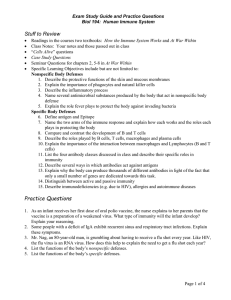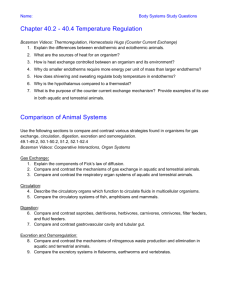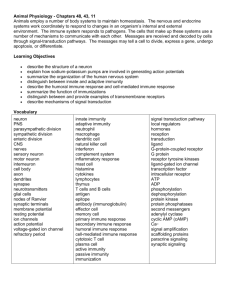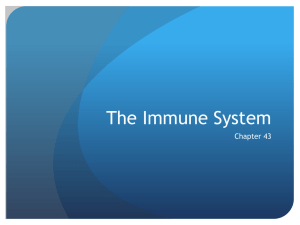Immune System
advertisement
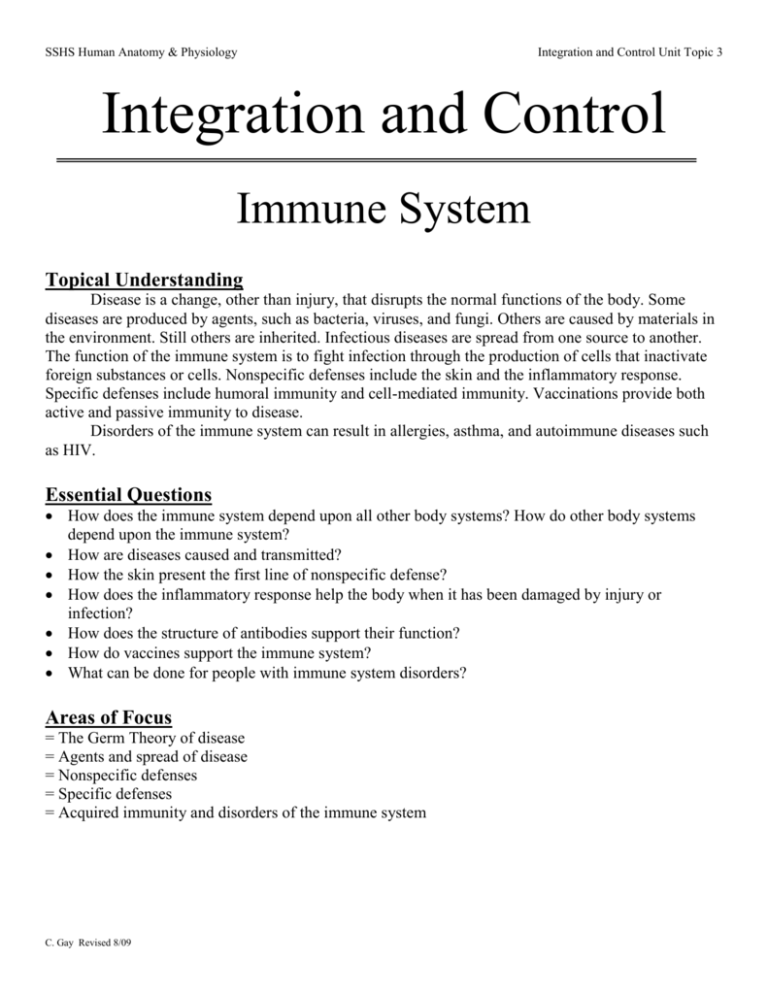
SSHS Human Anatomy & Physiology Integration and Control Unit Topic 3 Integration and Control Immune System Topical Understanding Disease is a change, other than injury, that disrupts the normal functions of the body. Some diseases are produced by agents, such as bacteria, viruses, and fungi. Others are caused by materials in the environment. Still others are inherited. Infectious diseases are spread from one source to another. The function of the immune system is to fight infection through the production of cells that inactivate foreign substances or cells. Nonspecific defenses include the skin and the inflammatory response. Specific defenses include humoral immunity and cell-mediated immunity. Vaccinations provide both active and passive immunity to disease. Disorders of the immune system can result in allergies, asthma, and autoimmune diseases such as HIV. Essential Questions How does the immune system depend upon all other body systems? How do other body systems depend upon the immune system? How are diseases caused and transmitted? How the skin present the first line of nonspecific defense? How does the inflammatory response help the body when it has been damaged by injury or infection? How does the structure of antibodies support their function? How do vaccines support the immune system? What can be done for people with immune system disorders? Areas of Focus = The Germ Theory of disease = Agents and spread of disease = Nonspecific defenses = Specific defenses = Acquired immunity and disorders of the immune system C. Gay Revised 8/09 SSHS Human Anatomy & Physiology Integration and Control Unit Topic 3 Knowledge Biology Textbook Reference Germ Theory of Disease Chapter 40.1-4 pp. 1030-1059 o Koch’s postulates o Definition of disease o Agents of disease (viruses, bacteria, protists, worms, fungi) o Spread of disease (physical contact, food & water, infected animals) o Fighting infectious disease Nonspecific defenses o Role of skin o Inflammatory response o Interferon Specific defenses o Humoral immunity, B cells, antibodies o Cell-mediated immunity, T cells Transplants Acquired immunity: passive and active Immune system disorders o Allergies o Asthma o Autoimmune diseases (diabetes, rheumatoid arthroitis, MS) o AIDS Skills: Vocabulary skills Data collection, representation and analysis C. Gay Revised 8/09
